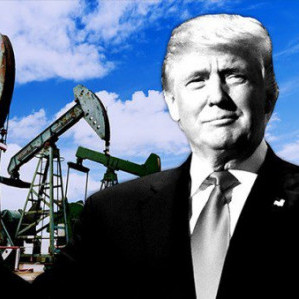The President of Russia became the first head of foreign state who visited India after the terror attack in Mumbai.
Dmitry Medvedev held his first official meeting with Indian Foreign Minister Pranab Mukherjee who spoke for further development of relations between Moscow and Delhi both in the bilateral format and in the format of the BRIC group (Brazil, Russia, India and China).
Russian President Dmitry Medvedev also had a meeting with Indian Prime Minister Manmohan Singh. One of the main subjects of discussion during the one-on-one talks was the outlook for trade and economic cooperation. Mr Medvedev and Mr. Singh discussed cooperation in the energy sector and also in the metallurgical industry, space exploration, information technology, pharmaceuticals, and military technical cooperation. Mr. Medvedev and Mr. Singh signed a joint declaration following the talks.
The Declaration states that in the light of the recent conflict in South Ossetia Russia and India support principles of reconciliation in the Caucasus elaborated by the Presidents of Russia and France and expect that the steps taken in this direction will result in lasting peace and cooperation in the Caucasus.
The document also points out that the parties regard the military-technical cooperation as a key aspect of the relationship between Russia and India and emphasize that Russia remains a leading arms supplier for India. The parties supported joint efforts to diversify and strengthen cooperation in this sphere and encouraged initiatives of the respective organizations in both countries aimed at meeting the permanently changing needs and requirements of each other.
The parties expressed their satisfaction with the efficient work of the Russian-Indian Intergovernmental Board on Military-Technical Cooperation and assigned it to permanently monitor and encourage implementation of decisions taken in the spheres of joint R&D, production, marketing, regular bilateral contacts and joint military exercises. The parties agreed that the long-term military-technical cooperation programme is a reliable basis for the cooperation, and it should be extended to 10 years after it expires in 2010. The parties commemorated the 10-th anniversary of the Russian-Indian joint venture for production of supersonic cruise missiles Bramos, and rollout of projects for joint development and production of a multipurpose air transport and fighter of the 5th generation, and expressed readiness to accelerate implementation of these projects.
The parties also signed a checklist of priority tasks for development of strategic partnership in 2009.
Speaking about the fight against terror Russian President Dmitry Medvedev claimed that Russia is “ ready for a full-fledged cooperation on all counter-terrorism issues with India”.
"We are ready to work with our Indian colleagues in this area, in all possible ways, and we are ready to provide support in every area we can”, said Medvedev.
Besides, the Russian and Indian parties signed several agreements in various spheres. India and Russia signed an agreement for cooperation on building two new units at the Kudankulam Nuclear Power Plant, and the construction of new Russian-designed nuclear power plants in India.
Head of Rosatom Sergey Kiriyenko said that the agreement stipulates construction of four new units at the Kudankulam Nuclear Power Plant and preparation for the construction of another nuclear power plant at least compatible with the Kudankulam in capacity.
The parties signed a memorandum of understanding between the Russian Space Agency and Indian Space Research Organization on joint works under manned space flight programs.
Head of Roskosmos Anatoli Perminov claimed that pursuant to this document Soyuz spacecraft with Indian cosmonaut will be launched in 2013, and India and Russia will start joint building of a manned spacecraft and cosmonaut training center. The first Indian manned space flight is scheduled for 2015.
During the talks the Federal Financial Markets Service of Russia and Securities and Exchange Board of India signed a memorandum of understanding on cooperation and information exchange.
Besides, the Federal Financial Markets Service of Russia and Financial Intelligence Unit – India signed an agreement on cooperation in combating legalization of incomes from illegal activities (money laundering).
In the sphere of tourism, the parties signed an intergovernmental joint action programme for 2009-2010.
Co-chairs of the Russian-Indian CEO Council signed a memorandum of understanding.
The Russian Academy of Customs and Indian National Academy of Customs, Excise and Narcotics signed a memorandum of understanding.
The Defense Acquisition Council of India and FSUE Rosoboronexport signed a contract on delivery of 80 helicopters Mi-17V-5.
Besides, the parties signed minutes of the fourteenth meeting of the Intergovernmental Board on Trade, Economic, Scientific, Technological and Cultural Cooperation.
Speaking at a press-conference following the talks Manmohan Singh said that this meeting was “historical”. According to him, the leaders of Russia and India discussed all spheres of bilateral relations from culture to combating the terror.
The Russian delegation included: Vice-Premier Alexander Zhukov, Defense Minister Anatoli Serdyukov, Minister of Culture Alexander Avdeyev, Heads of Services: Mikhail Dmitriyev (military-technical cooperation), Vladimir Milovidov (financial markers), Anatoli Yarochkin (tourism), Andrey Belyaminov (Federal Customs Service), Head of Roskosmos Anatoli Perminov, Acting Director for Development of Gas Business, TNK-BP, Victor Vekselberg, Chairman of the Supervisory Board, BASEL, Oleg Deripaska, General Director of Rosatom Sergey Kiriyenko, President of VTB Andrei Kostin, General Director of the Sukhoi Holding Company Mikhail Pogosyan, and President of the United Aircraft Corporation Alexey Fedorov.









